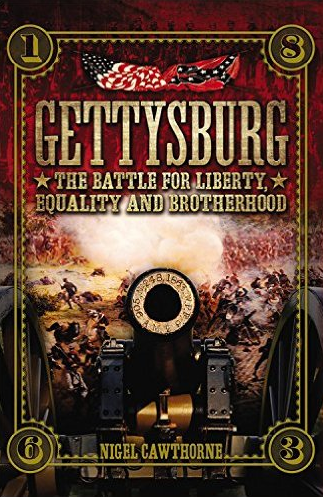
In the summer of 1863, Robert E. Lee’s Confederate Army slipped across the Potomac to draw out the Union Army. Lee’s army was 70,000 strong and has won nearly every battle it had fought. The Union Army was 80,000 strong and accustomed to defeat and retreat.
It was Lee’s second invasion of the Northâ??the Gettysburg Campaign. With his army in high spirits, Lee intended to shift the focus of the summer campaign from war-ravaged northern Virginia and hoped to influence Northern politicians to give up the war by penetrating as far as Philadelphia.
Thus begins the Battle of Gettysburg, the four most bloody and courageous days of America’s history. For Robert E. Lee, the battle was an unspeakable disaster. But with the total devotion of his generals and his unswerving faith in God, Lee was determined to fight to the bitter end.
Extremely well researched and based upon many contemporary accounts, Nigel Cawthorne’s text is alive with the energy of life itself yet, at the same time, echoes with the sound of death and despair. Gettysburg provides an individual insight into the strengths and weaknesses of the human character while conveying the horrors of the Civil War with staggering realism.
